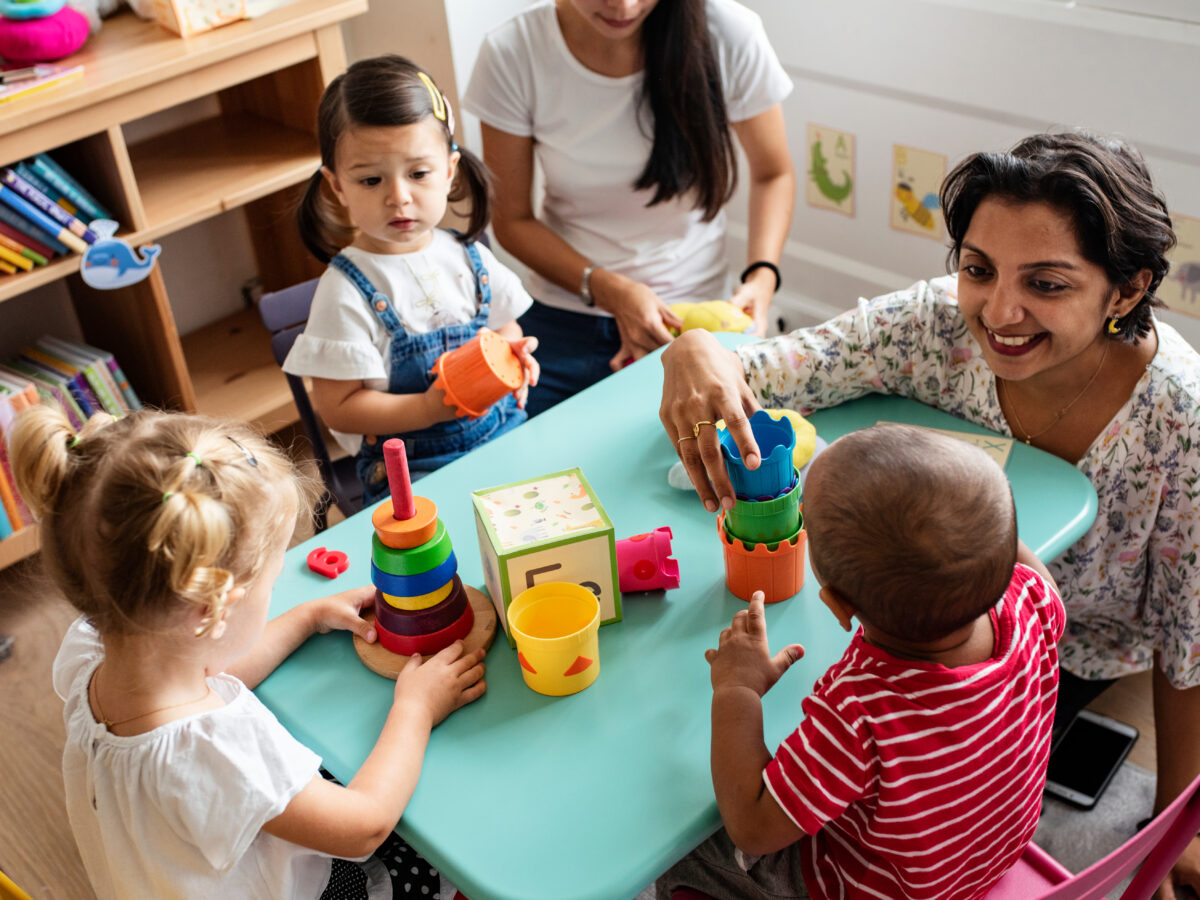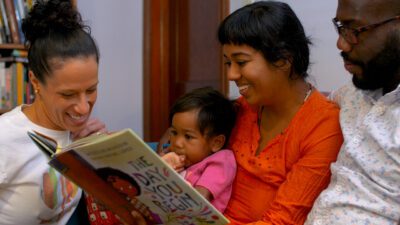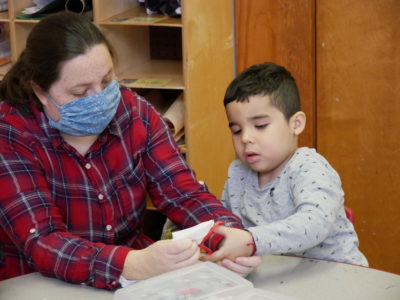

Across the country, dedicated early childhood teachers are building positive, supportive relationships that help each young learner develop on an individual pathway and explore their interests through joyful, play-based activities.
While high-quality early learning experiences like these reach many students, they should be the standard for all children. Research shows that the quality of an early childhood program is the strongest predictor of school readiness and life outcomes.
As state-level leaders remain eager to ensure that investments in early childhood education pay off down the road, they should look to quality as their priority. Without quality, programs will not achieve their desired outcomes. One of the ten quality standards set by the National Association for the Education of Young Children is early childhood assessment. Why is early childhood assessment important? Because if you don’t measure it, you can’t improve it.
Assessment determines the type of instruction a child receives. If a child is accurately assessed in their early childhood education setting, they can receive instruction that is aligned with their development, leading to engaged and joyful learning environments. If the opposite happens, children could begin to disengage from education in the earliest years.
Today, the primary method of early child assessment, through teacher observations, is known to be burdensome to teachers and at risk of implicit bias. And yet, nearly 60% of states have adopted an observation-only child assessment tool or provided an approved list of assessments that only has observation-based tools for early childhood.
Consistent with literature, a study with 11 teachers in upstate New York, conducted by Dr. Claire Cameron and Dr. Megan McClelland, found that teachers tended to rate Black children lower in terms of executive functioning and non-Black children higher in terms of executive functioning. Cognitive ToyBox’s direct, game-based assessment did not show that difference (paper in prep). Game-based assessment can give teachers the information they need to provide more developmentally appropriate instructional support.
Game-based assessment can be an especially helpful supplement for children who have learning differences. Dawn Wilson, a pre-K teacher in Wayne County, shared, “especially with my children with special needs, the games showed that they know more than we thought they did.”
Another advantage of game-based assessment is that teachers are able to get detailed information on a question-level detail, which they can use to further individualize instruction. “The data from Cognitive ToyBox has changed a lot of conversations for us for the better,” said Dr. Stephanie Hinton, director of early childhood at Oklahoma City Public Schools. “Rather than focusing on our class average and mastery score, we’re now having conversations about how 50% of children in the building can’t recognize the letters in their own name, and having dialogue around how to improve that.”
Finally, game-based assessment helps to increase the accessibility of assessment. Observation-based assessment tools are time- and resource-intensive, taking on average 20 to 60+ minutes per day for teachers. As a result, only early childhood programs that have an assessment budget and formalized professional development time built into the schedule can have access to these tools. Family child care and smaller center-based providers, which provide support for more than 30% of children under 5 in the U.S., are often left behind.
To ensure that all early childhood education programs can meet quality standards, we need to ensure that assessment tools are accessible, usable, and affordable in all early childhood education settings. Game-based assessment can help by providing cost-effective tools that take less time to learn and implement, but still yield accurate, useful data for family child care providers and small center-based providers. The time-savings benefit could also be beneficial to larger early childhood programs who are facing unprecedented levels of turnover from a combination of low wages and teacher burnout.
The federal Head Start Early Learning Outcomes Framework, which also shapes state pre-K assessment and kindergarten entry assessment policies, mandates that “a program must conduct standardized and structured assessments, which may be observation-based or direct.” However, to ensure equitable assessment, programs should be conducting observation-based and direct assessments on an ongoing basis. Game-based technology makes it possible to design direct assessments that are play-based and developmentally appropriate for young learners.
As state-level leaders, freshly awarded with a total $300 million in federal Preschool Development Grants, develop their strategy for quality, they can consider adding direct assessment into the mix. Direct assessments in early childhood have the strongest predictive relationship to later achievement. Moreover, recent advances in assessment and game-based technology make it possible for direct assessment to span whole child development and be developmentally appropriate and easy to implement for teachers. Most importantly, having access to direct assessment data for early learners will enable state-level leaders to more strategically support school readiness, helping every young learner reach their full potential.




